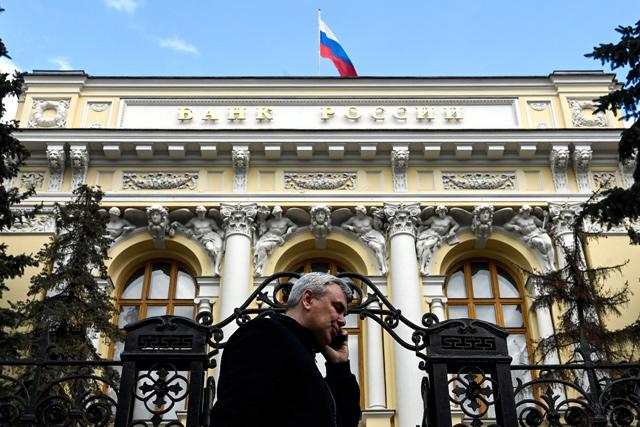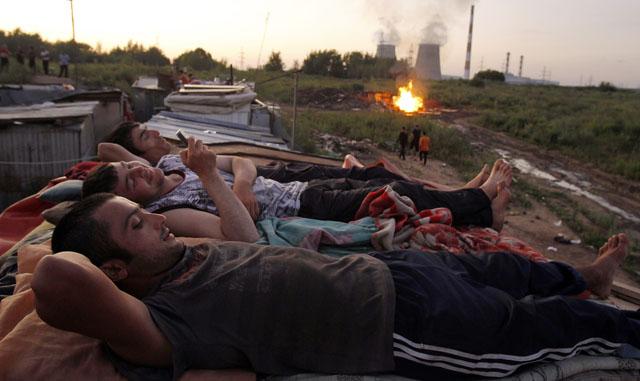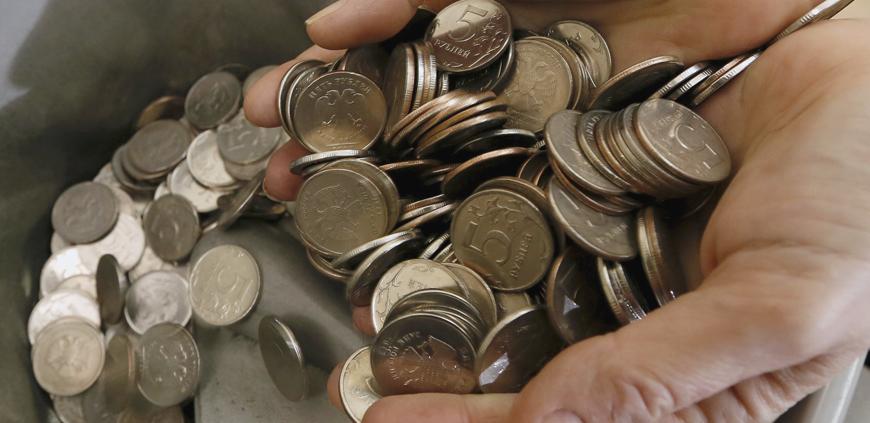You are here
Russia raises key interest rate as food prices soar
By AFP - Mar 22,2021 - Last updated at Mar 22,2021

A man on the phone walks past the Russian Central Bank headquarters as the Russian flag flies, in downtown Moscow, on Friday (AFP photo)
MOSCOW — Russia's central bank on Friday raised its key interest rate to 4.5 per cent in a surprise move, as authorities struggle to cap soaring food prices and the threat of new sanctions looms.
In recent months, Russia has faced accelerating inflation and a weak ruble, with authorities coming under pressure as the price of basic goods increased during the coronavirus pandemic.
"The fast recovery of demand and elevated inflationary pressure call for a return to neutral monetary policy," the central bank said in a statement, adding that further hikes could follow.
The increase by 0.25 percentage points — the first since late 2018 — surprised many analysts.
Economist Tatyana Evdokimova said the hike was a response to inflation exceeding forecasts.
"Looks like the regulator was caught by surprise as the hike happened despite no clear signal of upcoming tightening," Evdokimova tweeted.
Consumer prices started to climb in March 2020, driven by a slump in oil prices and a drop in the ruble's value after months of historically low inflation.
Timothy Ash, a strategist at Bluebay Asset Management, said he had expected a hike and pointed to rising geopolitical risks and the threat of new Western sanctions.
"This is nothing to do with inflation but all to do with geopolitics," he said in a note to clients, adding that the central bank was under pressure from the Kremlin.
"There are times it gets the call from the Kremlin and they tell them what to do. The message was 'sanctions are coming, macro financial risks are coming, Fortress Russia settings, hike rates'."
In February, inflation stood at 5.7 per cent in year-on-year terms.
The Bank of Russia expects it to peak in March before declining.
It said inflation would return to its 4 per cent target in the first half of next year.
Related Articles
Vali Salimov quit his job at a Moscow supermarket last month after his salary was halved, and returned home to Tajikistan another migrant victim of Russia's economic downturn whose family livelihood now looks precarious.
MOSCOW — Russia's central bank kept its key rate steady as inflation fears outweighed any temptation to use recent ruble strength as an oppo
Deep recession, skyrocketing prices and a fragile banking system: Although the ruble seems to have stabilised after its abysmal drop past week, Russia still faces the heavy consequences of the turbulence.















